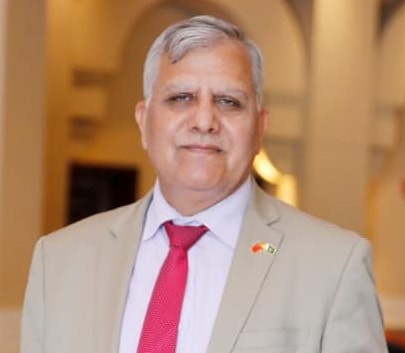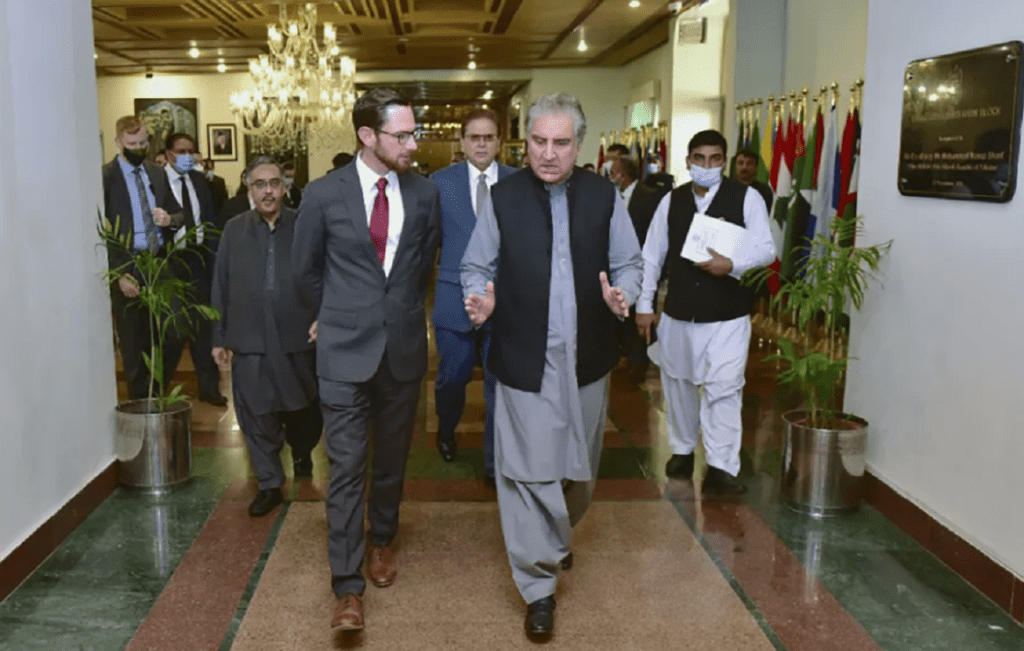By Prof. Engr. Zamir Ahmed Awan
The Troika Plus meeting was held on Nov 11, 2021, in Islamabad, after a gap of three months, during which key issues were discussed relating to the situation in Afghanistan.

The meeting was attended by Foreign Secretary Sohail Mahmood, Pakistan’s Ambassador to Afghanistan, Mansoor Ahmad Khan, Pakistan’s Special Representative to Afghanistan Muhammad Sadiq, US State Department’s Special Representative and Deputy Assistant Secretary for Afghanistan Thomas West, Russia’s Special Envoy for Afghanistan Zamir Kabulov and China’s Special Representative for Afghanistan, Yao Jing.
Troika Plus also met with the Afghan Acting Foreign Minister to discuss the conclusions of the Troika Plus meeting and hear the perspective of the Interim Afghan Government. The forum discussed the latest situation in Afghanistan at length while the leaders met senior Taliban representatives on the sidelines of the meeting. The officials asked Afghanistan to uphold its international legal obligations, including universally accepted principles of international law and fundamental human rights, and protect the safety and legitimate rights of foreign nationals and institutions on its lands.
Troika Plus is finding the platform useful for holding discussions and working together to address the complexities arising out of the Aug 15 takeover of Kabul by the Afghan Taliban is also evident in the fact that this was the 10th meeting of the group. Interestingly, just a day before the Islamabad moot, New Delhi had convened its own Regional Security Dialogue on Afghanistan that included senior security figures from Russia, Iran, and five Central Asian republics. It came up with a 12-point joint statement of its own. Pakistan and China had declined India’s invite. The Afghan Taliban were not invited, while the US was conspicuous by its absence, which makes the Troika Plus meeting all the more important in terms of both its representation and clout.
From the Afghan Taliban’s standpoint, there were several positive results. The moot expressed its concern over the humanitarian and economic crisis in Afghanistan and welcomed the Taliban’s commitment to allowing the safe passage of those who wished to travel to and from Afghanistan. It also “agreed to continue practical engagements with the Taliban to encourage the implementation of moderate and prudent policies that could help achieve a stable and prosperous Afghanistan as soon as possible” and reiterated respect for the sovereignty, independence, and territorial integrity of an Afghanistan free from terrorism and drug-related crimes.
The Taliban seem to have made progress in certain areas, including allowing girls’ schools to function in some provinces. Much, however, remains to be done. For instance, the Taliban have yet to respond to the international demand for an inclusive and representative government. It appears that differences still exist over the interpretation of what exactly an ‘inclusive and representative government’ means. Kabul’s hard-line rulers have also yet to show their commitment to cutting off ties with terrorist groups and not allowing their soil to be used against any country.
The presence of the Interim Foreign Minister of Afghanistan, Amir Khan Muttaqi, made the consortium of talks more meaningful. It, indeed, came as a tribute to Pakistan’s sincerity for ensuring peace and stability in the region, and the good point is that Beijing, Moscow, and Washington are on the same page. With the war-weary country in immediate need of an economic lifeline, this moot has at least assured that there won’t be any abandonment of Afghanistan. Unfreezing of assets and consolidating the political process must make headway in weeks and months to come.
The optimistic thing was that all participants were satisfied with the performance and progress of the Taliban and of the identical point of view that a stable and safe Afghanistan is vital. In fact, stability in Afghanistan means stability in the whole region, paving the way for developments and economic activities. It is a prerequisite for poverty eradication in the region. Afghanistan, under a war-like situation for almost four decades, has damaged the whole region and disaster for all.
There is a will. There is a way. It seems there exists consensus on Afghan stability. It is hoped this common goal will be achieved soon. The sooner, the better. The Taliban have been transformed completely, and the world has witnessed it. Taliban have successfully established their writ in the country and gained control over the whole country. The law and order situation has been improved immensely. Of course, economic difficulties exist, but, with the cooperation of the international community, they may be overcome soon. Bright days are ahead!
Author: Prof. Engr. Zamir Ahmed Awan – Sinologist (ex-Diplomat), Editor, Analyst, Non-Resident Fellow of CCG (Center for China and Globalization), National University of Sciences and Technology (NUST), Islamabad, Pakistan.
(The views and opinions expressed in this article are only of the authors and do not necessarily reflect the views, opinion or position of World Geostrategic Insights).
Image Credit: Pakistani Foreign Ministry via AP







